|
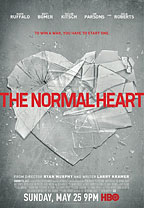
The Normal Heart
HBO Films,
2014
Director:
Ryan Murphy
Screenplay:
Larry Kramer
based on his play
Starring;
Mark Ruffalo,
Julia Roberts,
Alfred Molina,
Taylor Kitsch,
Jim Parsons,
Joe Mantello,
Stephen Spinella,
BD Wong,
Denis O'Hare,
Jonathan Groff
Unrated,
132 minutes |
The Only Living Boy In New York
by
Michael D. Klemm
Posted online June, 2014
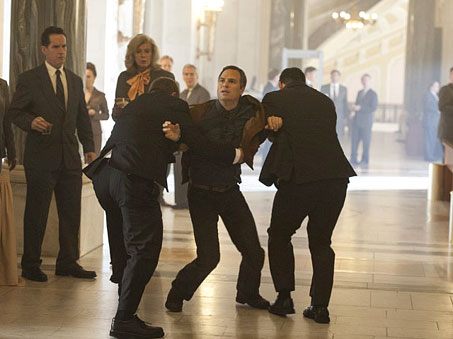
This prologue is for everyone who wasn’t born yet, or didn’t come of age during the 1980s. Imagine watching your friends, many of them athletic and young, inexplicably sicken and then die, often over the course of just a few months - if not weeks. Imagine being turned away from hospital emergency rooms. Imagine your fear and frustration while indifferent government agencies ignore the growing health crisis because the victims were only fags and junkies. Imagine listening to religious leaders proclaim that AIDS is a plague from God to punish the wicked. Also imagine hearing comedians make jokes about AIDS. |
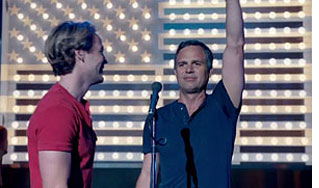 No list of 20th century agitprop theatre would be complete without Larry Kramer’s 1985 play, The Normal Heart. More of a polemic than a play, it was a scream of anger necessitated by terrible times. It may have preached to the choir but it certainly got everyone’s attention during its initial off-Broadway run. The Normal Heart took almost 30 years to make it to the screen, and HBO has come through again with yet another classy adaptation of an important queer work. Director Ryan Murphy, known for his television work on Glee and American Horror Story, over-directs at times but he delivers a profoundly moving film that satisfies on most levels. It is an important story that needs to be told because this ugly period of history is already being forgotten. No list of 20th century agitprop theatre would be complete without Larry Kramer’s 1985 play, The Normal Heart. More of a polemic than a play, it was a scream of anger necessitated by terrible times. It may have preached to the choir but it certainly got everyone’s attention during its initial off-Broadway run. The Normal Heart took almost 30 years to make it to the screen, and HBO has come through again with yet another classy adaptation of an important queer work. Director Ryan Murphy, known for his television work on Glee and American Horror Story, over-directs at times but he delivers a profoundly moving film that satisfies on most levels. It is an important story that needs to be told because this ugly period of history is already being forgotten.
|
|
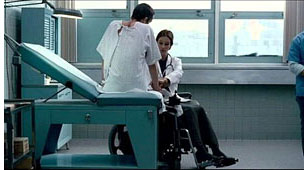 Kramer wrote the adaptation himself and, with Murphy, opened up the play to great effect. The resulting film is anything but stagey. The Normal Heart is a fictionalized, but mostly autobiographical, account of the author’s role during the first years of the AIDS crisis in New York City. Kramer’s stand-in is Ned Weeks (Mark Ruffalo). The year is 1981 and many of his friends are dying from a mysterious “gay cancer” that doctors have no idea how to treat. Angered by government inaction, he co-founds the Gay Men’s Health Crisis and begins to make a lot of noise. Too much noise actually, because his confrontational style is at odds with the other GMHC members who caution a more diplomatic approach. Ned has a habit of making analogies to the Nazis and the final solution, and he isn’t afraid to call Mayor Ed Koch a closeted queer during a television interview. Eventually he is forced out of the very group that he brought together. Kramer wrote the adaptation himself and, with Murphy, opened up the play to great effect. The resulting film is anything but stagey. The Normal Heart is a fictionalized, but mostly autobiographical, account of the author’s role during the first years of the AIDS crisis in New York City. Kramer’s stand-in is Ned Weeks (Mark Ruffalo). The year is 1981 and many of his friends are dying from a mysterious “gay cancer” that doctors have no idea how to treat. Angered by government inaction, he co-founds the Gay Men’s Health Crisis and begins to make a lot of noise. Too much noise actually, because his confrontational style is at odds with the other GMHC members who caution a more diplomatic approach. Ned has a habit of making analogies to the Nazis and the final solution, and he isn’t afraid to call Mayor Ed Koch a closeted queer during a television interview. Eventually he is forced out of the very group that he brought together.
|
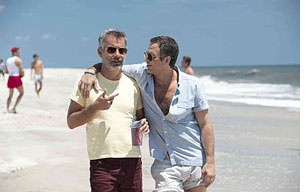 The play opened in a doctor’s waiting room. The film begins with a scene before that… an idyllic, yet also foreshadowing, interlude on Fire Island that serves as a warning that the party will soon be over. Amidst the shirtless men dancing, taking drugs and having sex, one of the revelers (Looking’s Jonathan Groff) gets sick and collapses on the beach. A bird’s eye crane shot stresses the incident’s deadly significance. And then, while riding the ferry back home, Ned reads a scary story in The New York Times entitled “Rare cancer diagnosed in 41 homosexuals.” The play opened in a doctor’s waiting room. The film begins with a scene before that… an idyllic, yet also foreshadowing, interlude on Fire Island that serves as a warning that the party will soon be over. Amidst the shirtless men dancing, taking drugs and having sex, one of the revelers (Looking’s Jonathan Groff) gets sick and collapses on the beach. A bird’s eye crane shot stresses the incident’s deadly significance. And then, while riding the ferry back home, Ned reads a scary story in The New York Times entitled “Rare cancer diagnosed in 41 homosexuals.”
|
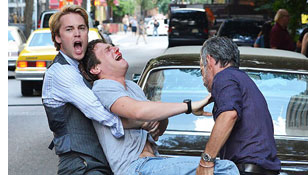 A dramatic scene at a doctor’s office follows when that same young man, convulsing, is carried into the waiting room. Dr. Emma Brookner (nicely played by Julia Roberts) has seen most of the first cases of this still unknown virus. Like her real-life counterpart, (Dr. Linda Laubenstein), Emma is a polio survivor confined to a motorized wheelchair. She tells Ned that her patients’ immune systems are collapsing and that they waste away from infections and illnesses that wouldn’t kill a baby. No one knows what is causing this “plague” but she thinks it could be sexually transmitted. ”I hear you have a big mouth,” she remarks. Ned asks if that is a symptom and she replies “No, a cure.” She wants Ned to tell everyone to stop having sex. A dramatic scene at a doctor’s office follows when that same young man, convulsing, is carried into the waiting room. Dr. Emma Brookner (nicely played by Julia Roberts) has seen most of the first cases of this still unknown virus. Like her real-life counterpart, (Dr. Linda Laubenstein), Emma is a polio survivor confined to a motorized wheelchair. She tells Ned that her patients’ immune systems are collapsing and that they waste away from infections and illnesses that wouldn’t kill a baby. No one knows what is causing this “plague” but she thinks it could be sexually transmitted. ”I hear you have a big mouth,” she remarks. Ned asks if that is a symptom and she replies “No, a cure.” She wants Ned to tell everyone to stop having sex.
|
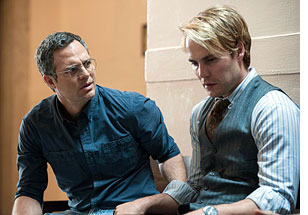 Ned forms the GMHC in his apartment, and there are disagreements almost immediately. The infighting over details like whether the word “gay” should be on their envelopes threatens to overwhelm the group. Afraid that Ned will piss too many people off, the others elect the more charismatic Bruce Niles (Taylor Kitsch) to be their leader. Ned’s presence, you see, also comes with some serious baggage. He is disliked in many gay circles for writing a novel that moralized too much (based, obviously, on Kramer’s own polarizing 1978 novel, Faggots). Much of the early gay revolution was centered around sexual liberation and no one wants to hear Ned’s apocalyptic warnings about sex. Ned forms the GMHC in his apartment, and there are disagreements almost immediately. The infighting over details like whether the word “gay” should be on their envelopes threatens to overwhelm the group. Afraid that Ned will piss too many people off, the others elect the more charismatic Bruce Niles (Taylor Kitsch) to be their leader. Ned’s presence, you see, also comes with some serious baggage. He is disliked in many gay circles for writing a novel that moralized too much (based, obviously, on Kramer’s own polarizing 1978 novel, Faggots). Much of the early gay revolution was centered around sexual liberation and no one wants to hear Ned’s apocalyptic warnings about sex.
|
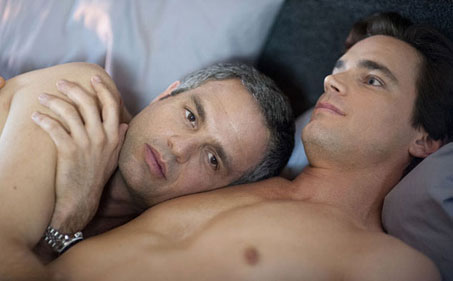 |
As the screaming continues, The Normal Heart documents just how fucked up this time was. Kramer doesn’t spare anyone – including himself – blaming the medical establishment, the mayor’s office, the media, and the apathy of the gay community. But no one wants to sit through a two hour political diatribe and so the author doesn’t forget to include some human drama. Ned’s strained relationship with his brother (Alfred Molina) is highlighted and he also gets to fall in love with Felix Turner (Matt Bomer), a closeted reporter from The New York Times. Felix will come down with AIDS, so be prepared for much heartache. But first they enjoy a tender romance, a few sexy interludes, and their first date is actually hilarious. “This is turning out to be a very romantic evening” Felix deadpans while Ned rants about how Dachau opened in 1933 and no one did anything about it. |
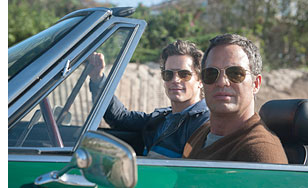 I admit to never having had the opportunity to see The Normal Heart on stage, but I read the play many decades ago and re-visited it before watching the HBO film. There is no question that Kramer proselytizes a lot, and the play is filled with speeches. So how does it translate to the screen? Surprisingly well, actually – better than I thought it would. It is a very dramatic film and it holds nothing back. The horror is presented without flinching, and the rage is kept intact. But, at the same time, the film also has a big heart. The project was clearly a labor of love but that doesn’t mean that certain artistic choices can’t be debated. According to his Wikipedia page, Kramer originally made Ned Weeks as obnoxious as he could to atone for his past behavior, but the filmmakers have made him a little more likable. Mark Ruffalo, known for usually playing the nice guy next door, is both a teddy bear and a grizzly. Perhaps his flashes of anger weren’t quite the thermonuclear explosions that Kramer was known for, but this probably makes the film more accessible for a mass television audience. Rather than chew the scenery for two hours, he delivers a credible and nuanced (yet still angry) performance. I admit to never having had the opportunity to see The Normal Heart on stage, but I read the play many decades ago and re-visited it before watching the HBO film. There is no question that Kramer proselytizes a lot, and the play is filled with speeches. So how does it translate to the screen? Surprisingly well, actually – better than I thought it would. It is a very dramatic film and it holds nothing back. The horror is presented without flinching, and the rage is kept intact. But, at the same time, the film also has a big heart. The project was clearly a labor of love but that doesn’t mean that certain artistic choices can’t be debated. According to his Wikipedia page, Kramer originally made Ned Weeks as obnoxious as he could to atone for his past behavior, but the filmmakers have made him a little more likable. Mark Ruffalo, known for usually playing the nice guy next door, is both a teddy bear and a grizzly. Perhaps his flashes of anger weren’t quite the thermonuclear explosions that Kramer was known for, but this probably makes the film more accessible for a mass television audience. Rather than chew the scenery for two hours, he delivers a credible and nuanced (yet still angry) performance.
|
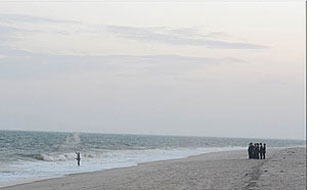 Because this is a film, we are able to actually see many of the events that could only be described on stage. Most notable is a chilling sequence that depicts Bruce’s attempt to take his dying lover home to see his mother one last time and enduring, just for starters, a pilot who refuses to fly the plane with an AIDS patient on board. Images of dying patients in the hospital are almost unbearable. A number of effective new scenes were added to the film version. The conflict between Ned and Bruce is intensified, and I especially liked the new motif involving Tommy Boatwright (Jim Parsons). Upon learning of another friend’s death, Tommy removes the man’s card from his Rolodex and puts it in a drawer. By the end of the film, there are piles of these cards (which he calls “tombstones”) paper-clipped together. Ending the film with Simon and Garfunkel’s song, “The Only Living Boy in New York” was an inspired touch. The viewer will be subjected to emotions on an operatic scale, including the famous deathbed wedding, but nothing about the film can be called melodramatic because the events depicted are, sadly, accurate. Because this is a film, we are able to actually see many of the events that could only be described on stage. Most notable is a chilling sequence that depicts Bruce’s attempt to take his dying lover home to see his mother one last time and enduring, just for starters, a pilot who refuses to fly the plane with an AIDS patient on board. Images of dying patients in the hospital are almost unbearable. A number of effective new scenes were added to the film version. The conflict between Ned and Bruce is intensified, and I especially liked the new motif involving Tommy Boatwright (Jim Parsons). Upon learning of another friend’s death, Tommy removes the man’s card from his Rolodex and puts it in a drawer. By the end of the film, there are piles of these cards (which he calls “tombstones”) paper-clipped together. Ending the film with Simon and Garfunkel’s song, “The Only Living Boy in New York” was an inspired touch. The viewer will be subjected to emotions on an operatic scale, including the famous deathbed wedding, but nothing about the film can be called melodramatic because the events depicted are, sadly, accurate.
|
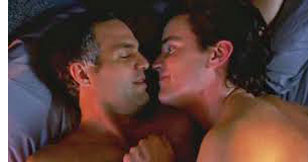 On the minus side, the direction is a bit too flashy in spots. It was very dramatic when flashing lights on a subway revealed the Karposi lesions on another dying man’s face to Felix who, by this point, is growing sicker by the day. Using the conventions of a horror film was not overkill in this case because, when you get down to it, this is a horror film - much scarier than a slasher flick. However, a flashback to Ned and Felix’s first meeting, a few years earlier at the baths, becomes needlessly campy when it is filmed as a cheesy commercial. Moments like this, thankfully, are few. On the minus side, the direction is a bit too flashy in spots. It was very dramatic when flashing lights on a subway revealed the Karposi lesions on another dying man’s face to Felix who, by this point, is growing sicker by the day. Using the conventions of a horror film was not overkill in this case because, when you get down to it, this is a horror film - much scarier than a slasher flick. However, a flashback to Ned and Felix’s first meeting, a few years earlier at the baths, becomes needlessly campy when it is filmed as a cheesy commercial. Moments like this, thankfully, are few.
|
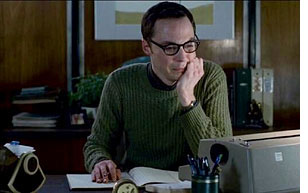 The cast is terrific and a good chunk of the actors are gay. Aside from Matt Bomer, there’s also Jonathan Groff (Looking), Stephen Spinella (best known for playing Prior Walter on stage in Kushner’s Angels in America) as an early victim, BD Wong (OZ) as a nurse, and Denis O’Hare (True Blood) as the Mayor’s closeted aide. Also look for Joe Mantello and Jim Parsons, who were both in the acclaimed 2011 Broadway revival. If, like me, you are a fan of The Big Bang Theory, you will enjoy watching “Sheldon” punch out a homophobic protester. Parsons made me cry when he delivered the eulogy at a friend’s funeral. “Why are they letting us die?” he asks. “And here’s the answer. They just don’t like us.” The cast is terrific and a good chunk of the actors are gay. Aside from Matt Bomer, there’s also Jonathan Groff (Looking), Stephen Spinella (best known for playing Prior Walter on stage in Kushner’s Angels in America) as an early victim, BD Wong (OZ) as a nurse, and Denis O’Hare (True Blood) as the Mayor’s closeted aide. Also look for Joe Mantello and Jim Parsons, who were both in the acclaimed 2011 Broadway revival. If, like me, you are a fan of The Big Bang Theory, you will enjoy watching “Sheldon” punch out a homophobic protester. Parsons made me cry when he delivered the eulogy at a friend’s funeral. “Why are they letting us die?” he asks. “And here’s the answer. They just don’t like us.”
|
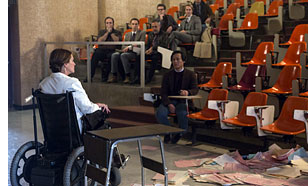 Near the film’s end, Ned delivers a very moving speech, performed with conviction by Ruffalo, in which he speaks of belonging to a culture that includes Proust, Henry James, Tchaikovsky, Michelangelo, Leonardo da Vinci, Walt Whitman, Herman Melville and many others. He speaks of Alan Turing, a gay Englishman who broke Hitler’s enigma code and helped win the war and then killed himself years later after being arrested for being queer. “Why don’t they teach any of this stuff in schools?” he asks. That is a good question because we didn't learn these things in school and the events depicted in this movie is history that we don’t want repeated. Sometimes we need a good piece of agitprop to fill some of the holes in our education. Information is power, and The Normal Heart, at the very least, has the ability to teach us how not to forget. Near the film’s end, Ned delivers a very moving speech, performed with conviction by Ruffalo, in which he speaks of belonging to a culture that includes Proust, Henry James, Tchaikovsky, Michelangelo, Leonardo da Vinci, Walt Whitman, Herman Melville and many others. He speaks of Alan Turing, a gay Englishman who broke Hitler’s enigma code and helped win the war and then killed himself years later after being arrested for being queer. “Why don’t they teach any of this stuff in schools?” he asks. That is a good question because we didn't learn these things in school and the events depicted in this movie is history that we don’t want repeated. Sometimes we need a good piece of agitprop to fill some of the holes in our education. Information is power, and The Normal Heart, at the very least, has the ability to teach us how not to forget.
Alfred Molina also appears in:
Prick Up Your Ears
Stephen Spinella also appears in:
Love! Valour! Compassion!
Milk
Denis O’Hare also appears in:
An Englishman in New York
Heights
Milk
Jim Parsons also appears in:
Heights
BD Wong also appears in:
OZ
Jonathan Groff also appears in:
Taking Woodstock
Joe Mantello directed the stage and film versions of:
Love! Valour! Compassion! |


